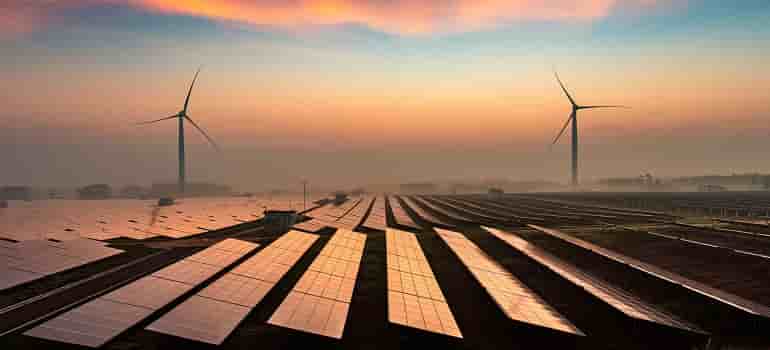Multi-pronged approach needed for ambitious 2070 target, with focus on renewables, nuclear, and affordability
In a significant step towards achieving its ambitious net-zero target by 2070, India unveiled a comprehensive report outlining the pathways for a clean energy transition.
The report, titled “Synchronizing energy transitions towards possible Net-Zero for India: Affordable and clean energy for All,” was prepared by the Indian Institute of Management Ahmedabad (IIM Ahmedabad) and launched by the Principal Scientific Adviser (PSA) to the Government of India, Prof. Ajay Kumar Sood.
The report underscores the need for a multi-pronged approach, emphasizing a diverse energy mix that goes beyond a single solution. While acknowledging coal’s continued role in the near future, the study stresses the crucial role of renewable energy (RE) and nuclear power in achieving net-zero. This aligns with the vision expressed by Dr. V.K. Saraswat, Member of NITI Aayog, who emphasized the importance of a “development-led clean energy transition.”
Key findings from the report include:
- No single solution: India’s energy transition requires a combination of technologies, including RE, nuclear, and clean coal technologies.
- Nuclear’s critical role: Substantial nuclear power generation is essential to achieve net-zero alongside significant RE integration.
- Early decarbonization of electricity sector: Decarbonizing the power sector well before 2070 is crucial for achieving net-zero emissions.
- Balancing affordability and sustainability: The report highlights the need for clean and affordable electricity at a low levelized cost for consumers.
- Electrification push: A significant increase in electrification across various sectors is necessary.
- Investment needs: Achieving net-zero will require substantial financial resources, estimated at Rs 150-200 lakh crore (US$2-2.5 trillion) by 2070.
Experts participating in the launch ceremony offered valuable insights. Dr. Anil Kakodkar, former Chairman of the Atomic Energy Commission (AEC), stressed the need for developing low-cost hydrogen production technologies. Dr. A.K. Mohanty, Secretary of the Department of Atomic Energy (DAE) and Chairman of the AEC, highlighted India’s ongoing nuclear program and ambitious plans to increase nuclear capacity.
Prof. Sood concluded the event by expressing confidence that the report would be a valuable resource for policymakers, industries, and stakeholders engaged in India’s clean energy journey. This report signifies a critical step forward for India as it navigates the complexities of achieving net-zero while ensuring energy security and economic development.


